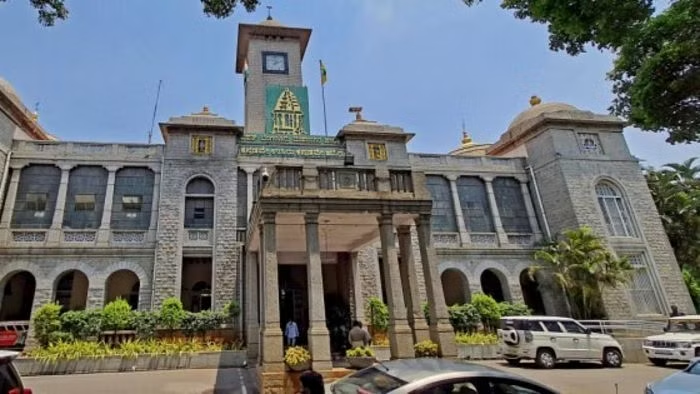Power struggle Residents, BBMP, and builder in dispute
Nagarjuna Layout in Bengaluru East has been plunged into darkness after the Bengaluru Electricity Supply Company (BESCOM) disconnected streetlights due to unpaid electricity dues amounting to Rs 15 lakh. For over five years, residents assumed that their property taxes covered all municipal services, including streetlight maintenance. However, a gap in accountability has now left them in an unsafe predicament, with authorities shifting blame between the builder, BBMP, and the residents themselves. The layout, home to 80 constructed houses out of 130 site owners, had functional streetlights until Wednesday when BESCOM officials took action. With the absence of street lighting, safety concerns have risen, especially for those commuting at night. The crisis underscores a critical oversight in private layouts, where developers often fail to hand over infrastructure maintenance responsibilities to the BBMP, leading to prolonged disputes over essential services.
The issue highlights broader governance challenges in Bengaluru’s urban planning. Residents claim they have been paying property taxes diligently, only to discover that streetlight dues had never been settled. The President of Nagarjuna Layout Site Owners and Residents Association, L Anandappa, expressed frustration, stating that the BBMP should have automatically taken responsibility. On the other hand, the BBMP Executive Engineer clarified that the streetlights were never officially transferred to the municipal body, absolving them of financial liability. BESCOM, after several warnings to residents, finally pulled the plug, insisting that either the builder or residents must clear the pending dues. This bureaucratic impasse exposes a recurring pattern in Bengaluru’s private layouts, where infrastructure maintenance often falls into a grey area, leaving residents caught between municipal inaction and developer neglect.
From a sustainability standpoint, the situation raises concerns over the long-term viability of urban infrastructure planning in Bengaluru. With the city’s rapid expansion, private layouts are becoming more common, yet many remain outside the purview of municipal governance, creating service disparities. The absence of streetlights not only compromises safety but also impacts energy efficiency efforts. If BESCOM and BBMP were to introduce sustainable alternatives such as solar-powered streetlights with clear accountability mechanisms, such disputes could be avoided in the future. Sustainable urban planning demands a proactive approach where infrastructure is transferred seamlessly to municipal bodies, preventing service disruptions and ensuring energy-efficient solutions for growing localities.
The larger issue at play here is the lack of coordination between government agencies and private developers. Bengaluru has witnessed multiple cases where streetlight and civic infrastructure handovers are delayed, leading to confusion over financial obligations. In comparison, cities like Pune and Hyderabad have adopted clearer frameworks for infrastructure transfers in private layouts, ensuring municipal authorities take over responsibility after a stipulated period. As Bengaluru continues to expand, similar reforms are necessary to prevent recurring conflicts. Until then, the fate of Nagarjuna Layout’s streetlights remains uncertain, resting on the decision of BBMP, BESCOM, and the residents themselves to reach a resolution.



